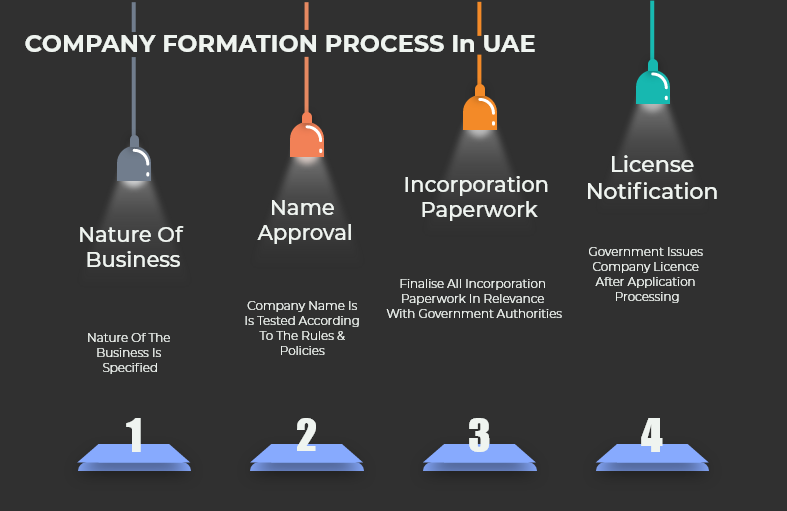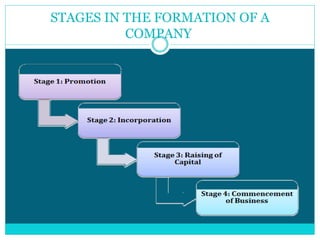Enhancing Company Formation with the Commercial Registration Electronic System
Wiki Article
Navigating the Complex World of Company Development: Insights and Techniques
Starting the journey of developing a business can be an overwhelming task, specifically in a landscape where regulations are frequently developing, and the risks are high. As business owners set out to browse the intricate globe of firm development, it comes to be critical to gear up oneself with a deep understanding of the elaborate nuances that specify the process. From choosing one of the most suitable organization framework to guaranteeing strict legal compliance and devising reliable tax planning techniques, the course to developing an effective service entity is filled with intricacies. By unwinding the layers of details and leveraging informative techniques, entrepreneurs can lead the way for a strong foundation that establishes the stage for future growth and sustainability.Service Structure Choice
In the realm of company formation, the important decision of picking the appropriate company structure lays the structure for the entity's operational and lawful structure. The selection of organization framework dramatically influences numerous aspects of the company, including taxes, obligation, management control, and compliance requirements. Entrepreneurs need to carefully review the available alternatives, such as single proprietorship, collaboration, limited responsibility company (LLC), or company, to determine the most ideal framework that straightens with their company goals and circumstances.One common framework is the single proprietorship, where the business and the proprietor are thought about the very same legal entity - company formation. This simpleness permits ease of development and complete control by the proprietor; nevertheless, it likewise requires unlimited individual responsibility and possible challenges in increasing capital. Partnerships, on the various other hand, involve two or even more individuals sharing revenues and losses. While collaborations supply common decision-making and source pooling, companions are directly accountable for business's financial obligations and responsibilities. Understanding the subtleties of each organization structure is important in making a notified choice that establishes a solid foundation for the firm's future success.
Legal Conformity Fundamentals
With the foundation of an appropriate company framework in area, making sure legal conformity basics becomes vital for securing the entity's procedures and preserving governing adherence. Lawful conformity is crucial for business to operate within the borders of the law and stay clear of lawful issues or potential charges.To make certain legal conformity, firms need to regularly evaluate and update their treatments and policies to show any type of changes in regulations. Seeking lawful guidance or conformity specialists can better help firms navigate the intricate legal landscape and stay up to day with developing policies.
Tax Obligation Planning Considerations

Additionally, tax obligation planning need to encompass strategies to take advantage of offered tax obligation rewards, credit reports, and reductions. By purposefully timing earnings and costs, services can possibly reduce their taxable earnings and general tax burden. It is likewise important to stay educated about adjustments in tax obligation regulations that might impact the image source service, adjusting strategies appropriately to remain tax-efficient.
Moreover, global tax planning factors to consider might occur for services running throughout borders, involving complexities such as transfer rates and foreign tax credit scores - company formation. Looking for guidance from tax professionals can help navigate these complexities and develop a thorough tax obligation strategy customized to the firm's requirements
Strategic Financial Management
Efficient financial administration involves a thorough strategy to supervising a firm's monetary resources, financial investments, and general monetary health and wellness. By producing thorough budgets that line up with the business's goals and objectives, organizations can designate resources effectively and track efficiency versus monetary targets.
An additional crucial facet is cash circulation administration. Checking money inflows and outflows, handling capital properly, and making certain enough liquidity are essential for the everyday operations and long-term stability this contact form of a business. In addition, calculated economic management includes danger analysis and reduction methods. By determining financial risks such as market volatility, debt risks, or regulatory adjustments, business can proactively apply measures to protect their monetary stability.
Moreover, monetary reporting and analysis play an important duty in tactical decision-making. By producing precise monetary records and conducting extensive evaluation, organizations can obtain valuable insights right into their financial efficiency, identify areas for renovation, and make home educated tactical choices that drive lasting growth and profitability.
Development and Expansion Strategies
To thrust a business towards raised market presence and earnings, tactical development and growth methods have to be carefully designed and executed. One reliable technique for growth is diversity, where a company goes into brand-new markets or offers brand-new items or solutions to utilize and reduce risks on emerging possibilities. It is vital for business to perform complete market research, monetary evaluation, and threat evaluations before beginning on any type of development method to guarantee sustainability and success.
Conclusion
To conclude, navigating the complexities of firm development needs cautious consideration of business structure, legal conformity, tax planning, monetary management, and development methods. By tactically selecting the appropriate service structure, making certain legal compliance, preparing for taxes, managing financial resources efficiently, and implementing growth strategies, business can set themselves up for success in the affordable company setting. It is essential for businesses to approach firm formation with a critical and extensive frame of mind to attain long-term success.
In the realm of firm development, the crucial choice of selecting the suitable organization structure lays the foundation for the entity's functional and legal structure. Business owners should meticulously evaluate the available alternatives, such as single proprietorship, partnership, limited obligation firm (LLC), or firm, to identify the most appropriate framework that straightens with their business goals and scenarios.
By developing thorough budgets that straighten with the company's goals and objectives, organizations can allot resources successfully and track efficiency against monetary targets.
In final thought, browsing the intricacies of business development calls for careful factor to consider of business structure, lawful conformity, tax obligation planning, financial management, and growth techniques. By strategically selecting the best company structure, making sure legal conformity, preparing for tax obligations, taking care of finances successfully, and carrying out development techniques, firms can establish themselves up for success in the affordable organization atmosphere.
Report this wiki page